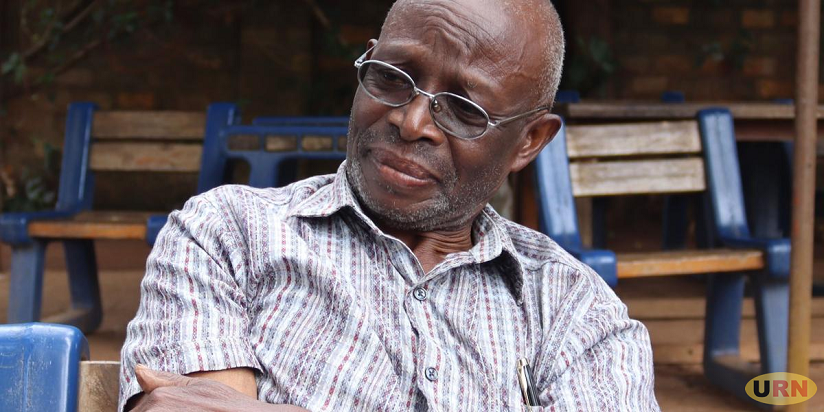Prof Samwiri Lwanga Lunyiigo in an interview with URN
The revelation by government that its preparing to amend the land laws has triggered anxiety in Buganda over the possibility of abolishing mailo land, a system of land ownership common in central region which the president has described as evil. But Prof Samwiri Lwanga Lunyiigo, a historian and author thinks it could be mostly non-Baganda who will be stabbing themselves if mailo land is abolished.
In an interview with URN reporters, Prof Lunyiigo argued that very few Baganda own mailo land in the first place, as it is owned by “those in power” who have amassed a lot of wealth.
“Hence, won’t the land owners be committing suicide if they engineer abolition of mailo land?” Lunyiigo asks.
The land question discussion, Lunyiigo says, should start with Buganda’s 9,000 square miles taken by Obote’s government in 1966.
In his book The Struggle for Land in Buganda: 1888-2005, Lunyiigo argues that apart from the monarch, no other issue raises the passion of Baganda more than the 9,000 square miles that the British grabbed from Baganda in the 1900 agreement which Lunyiigo says was a disaster for Buganda.
In March 1962, under the public lands ordinance, crown land of British colonialist was returned to Buganda and vested in Buganda Land Board.
“The revolution of 1966 swept Buganda kingdom away, an act which was formalized in the 1967 Uganda Republican Constitution,” Lunyiigo writes in his book.
“Thereafter, the 9,000 square miles were vested in the Uganda Land Commission and following this change, those close to the Obote I regime helped themselves to whatever public land they wished and it was this new land grabbing that represented the real conquest of Buganda.”
Whatever and whoever is on this land, Lunyiigo argued during the interview that there is need for recognition that land grabbed by Obote in 1966 belongs to Buganda.
Subsequent discussions, he says, can focus on how the kingdom can benefit from it and how it can relate with those occupying it.
“In 1955, Zakaria Mungonya became the first minister of lands in the colonial government and he introduced a mailo land system in areas such as a Ankole, Kigezi and Bugisu, which is never talked about when discussions of land happen;” Lunyiigo argues. “It is as if land only exists in Buganda and not elsewhere, and the system has been called evil and only evil in Buganda.”
In amending land act, the government has explained that its aim is to protect squatters who are being evicted. When Museveni slammed mailo land as evil system that isn’t found elsewhere in Uganda in June, he gave an example of a person he knew who has been evicted.
“I was surprised to hear that veteran Livingston Ssenabulya who gave us a forest during the [1981-86] liberation war had been chased from his land, the person who was chasing them, Namwandu Mulyante, was our person,” he said.
Lunyiigo equally dedicates a chapter in his book on ominous frequent eviction of peasants in Buganda. He says land is the ultimate security to a peasant who has nothing else. “They work on land until they drop dead,” he wrote.
He says that there are signs that peasants are being pushed to the wall and are losing patience. As a consequence, he writes that they are beginning to resist eviction.
“They are becoming violent,” he wrote. “They smash fences that landlords erect, they smash surveying equipment and chase away surveyors.”
A question that should loom large in the mind of land owners is, where should evicted peasants go?
“Land in Buganda is no longer plentiful and the question of where to evict is very crucial,” he argued in his book. “Eviction is traumatizing, it is even more so if the evicted don’t have where to go.”
-URN






Government should not scrap mailo land as most peasants in Buganda occupy a large portion of mailo land.